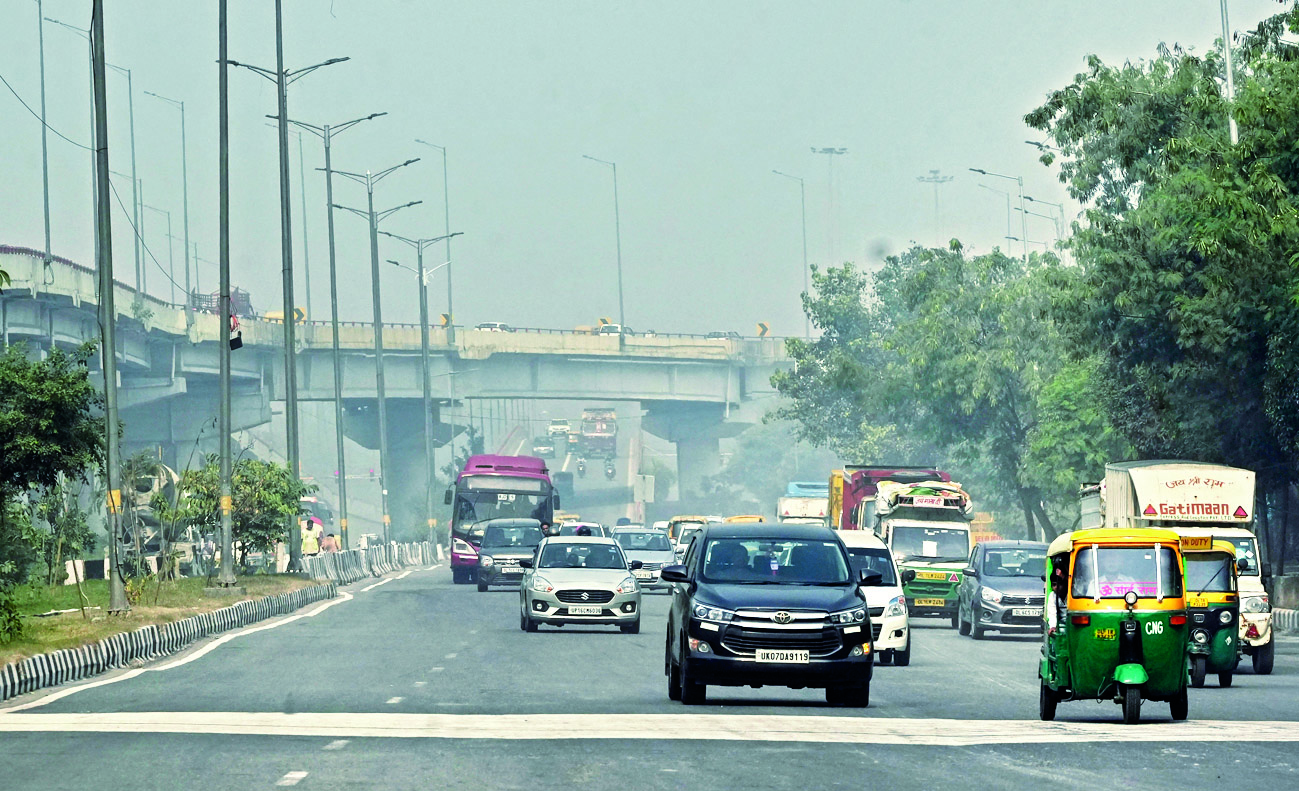City’s air quality poor for fifth day in row, to worsen in days ahead

New Delhi: Delhi’s air quality was recorded in the ‘poor’ category for the fifth consecutive day on Friday, and it is predicted to worsen over the weekend due to unfavourable meteorological conditions, according to weather monitoring agencies.
The city’s 24-hour average Air Quality Index (AQI) stood at 261, worsening from 256 on Thursday, 243 on Wednesday, and 220 on Tuesday.
The AQI was 227 in neighbouring Ghaziabad, 235 in Faridabad, 224 in Gurugram, 220 in Noida, and 280 in Greater Noida.
An AQI between zero and 50 is considered ‘good’, 51 to 100 ‘satisfactory’, 101 to 200 ‘moderate’, 201 to 300 ‘poor’, 301 to 400 ‘very poor’, and 401 to 500 ‘severe’.
According to the Centre’s Air Quality Early Warning System for Delhi, the city’s air quality is likely to deteriorate to the ‘very poor’ category on Saturday, primarily due to slow wind speed and a dip in temperatures.
Unfavourable meteorological conditions and a cocktail of emissions from firecrackers and paddy straw burning, in addition to local sources of pollution, push Delhi-NCR’s air quality to hazardous levels during winter.
According to an analysis conducted by the Delhi Pollution Control Committee, the capital experiences peak pollution from November 1 to November 15 when stubble burning incidents in Punjab and Haryana peak.
While Delhi is facing a sharp decline in air quality in the coming days, crucial data that helped the government prepare a strategy to mitigate the air pollution problem is missing.
The Ministry of Earth Sciences’ System of Air Quality and Weather Forecasting and Research, which provided data about the contribution of smoke from farm fires to Delhi’s air pollution, has not been providing updates, and associated officials are unaware of the reason.
“We are not aware of why updates on the SAFAR portal have stopped,” said an official at the Indian Institute of Tropical Meteorology, which operates the website. Similarly, data from the Decision Support System, a numerical model-based framework capable of identifying sources of particulate matter pollution in Delhi, isn’t accessible to the general public anymore.
Recently, Delhi Environment Minister Gopal Rai said that the city government’s study to determine pollution sources in the national capital has been halted ‘unilaterally and arbitrarily’ on the orders of DPCC Chairman Ashwani Kumar.
The Delhi government had last month launched a 15-point action plan to mitigate air pollution in the capital during the winter season, with a strong emphasis on addressing dust pollution, vehicular emissions, and the open burning of garbage. Special drives to check dust, vehicular and industrial pollution are already underway in the city. In keeping with the practice of the last three years, Delhi had last month announced a comprehensive ban on the manufacture, storage, sale, and use of firecrackers within the city.



